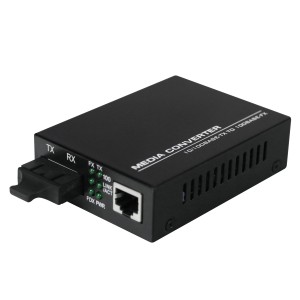Fiber Optic Sensor
The fiber optic sensor is composed of a light source, an incident fiber, an exit fiber, a light modulator, a light detector, and a demodulator. The basic principle is to send the light of the light source to the modulation area through the incident fiber, and the light interacts with the external measured parameters in the modulation area to make the optical properties of the light (such as intensity, wavelength, frequency, phase, deviation normal, etc.) occur. The changed signal light becomes the modulated signal light, which is then sent to the photodetector and demodulator through the exit fiber to obtain the measured parameters.
Optical fiber sensors can be divided into two categories according to the structure type: one is a functional (sensing) sensor; the other is a non-functional (light-transmitting) sensor.
Functional sensor
Use the optical fiber (or special optical fiber) with sensitivity and detection ability to external information as the sensing element to modulate the light transmitted in the optical fiber to change the intensity, phase, frequency or polarization of the transmitted light. By demodulating the modulated signal, the measured signal is obtained.
The optical fiber is not only a light guide medium, but also a sensitive element, and multi-mode optical fiber is mostly used.
Advantages: compact structure and high sensitivity. Disadvantages: Special optical fibers are required, and the cost is high. Typical examples: fiber optic gyroscopes, fiber optic hydrophones, etc.
Non-functional sensor
It uses other sensitive components to sense the changes being measured. Optical fiber is only used as the transmission medium of information, and single-mode optical fiber is often used. The optical fiber only plays a role in guiding light, and the light is measured and modulated on the optical fiber-type sensitive element.
Advantages: No need for special optical fibers and other special technologies, relatively easy to implement, and low cost. Disadvantages: low sensitivity. Most of the practical ones are non-functional optical fiber sensors.






